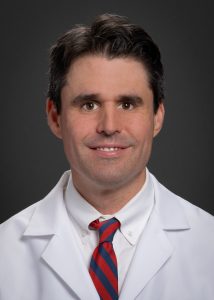THE DANGERS OF DROWSY DRIVING
Have you ever found yourself dozing off behind the wheel? According to a survey by the American Academy of Sleep Medicine (AASM), you’re not alone. In fact, an alarming 45% of Americans admit to struggling to stay awake while driving a vehicle, posing a danger to public health and safety on the road. The National Highway Traffic Safety Administration conservatively estimates that 100,000 police-reported crashes are the direct result of driver fatigue each year.
Tackling sleep issues can be difficult, especially when our values frequently do not align with avoiding drowsy driving. Our 24/7 society emphasizes work, longer commutes and the exponential advancement of technology, so many people do not get the sleep they need.
Operating a motor vehicle while fatigued or sleepy is commonly referred to as “drowsy
driving.” Drowsy-driving crashes occur most frequently between midnight and 6 a.m., or in the late afternoon. Crashes involving drowsy driving often involve only a single driver (and no passengers) running off the road at a high rate of speed.
Drowsy driving is similar to drunk driving. According to studies referenced by the CDC, going too long without sleep can impair your ability to drive the same way as drinking too much alcohol. Being awake for 18 hours is the same as someone having a blood alcohol content
(BAC) of 0.05% and being awake for 24 hours is equal to having a BAC of 0.10% (this is higher than the legal limit, 0.08% BAC, in all states). Additionally, drowsiness increases the effect of even low amounts of alcohol.
Warning signs of drowsy driving include yawning or blinking frequently, difficulty remembering the past few miles driven, missing your exit, drifting from your lane or hitting a rumble strip. If you experience any of the warning signs of drowsy driving while driving, pull over to a safe place and take a break or change drivers. Simply turning up the radio or opening the window are not effective ways to keep you alert. “If someone needs to do something active to stay awake or alert when driving or if they are sleepy with driving, it is important to not only stop driving, but to also get help to determine why this is occurring. Treatment for sleep issues can help prevent unnecessary accidents, injuries or death,” says sleep specialist David Cohen, MD.
Drowsy driving is preventable. Getting adequate sleep daily is the only true way to protect yourself and others against the risks of driving when you’re drowsy. Experts urge adults to make it a priority to get seven to eight hours of sleep per night. Develop good sleeping habits such as sticking to a sleep schedule. If you have a sleep disorder such as snoring or feeling sleeping during the day, talk to your physician about treatment options.
Learn the latest news on sleep remedies in a virtual seminar on Tuesday, November 10 with David Cohen, MD, Chair of Sleep Services at Chestnut Hill Hospital – Tower Health.
Register today: CHWellnessEvents.com.

